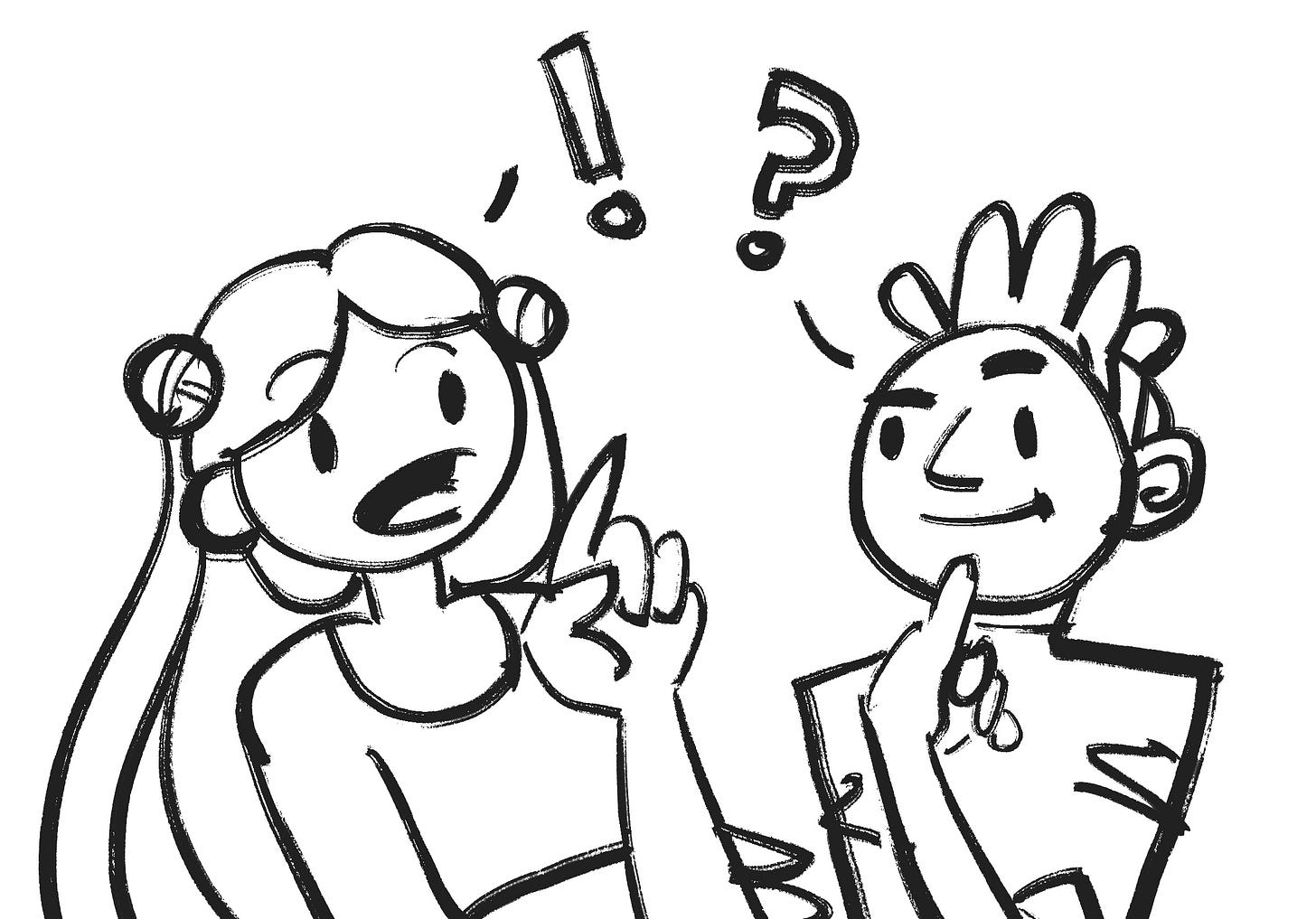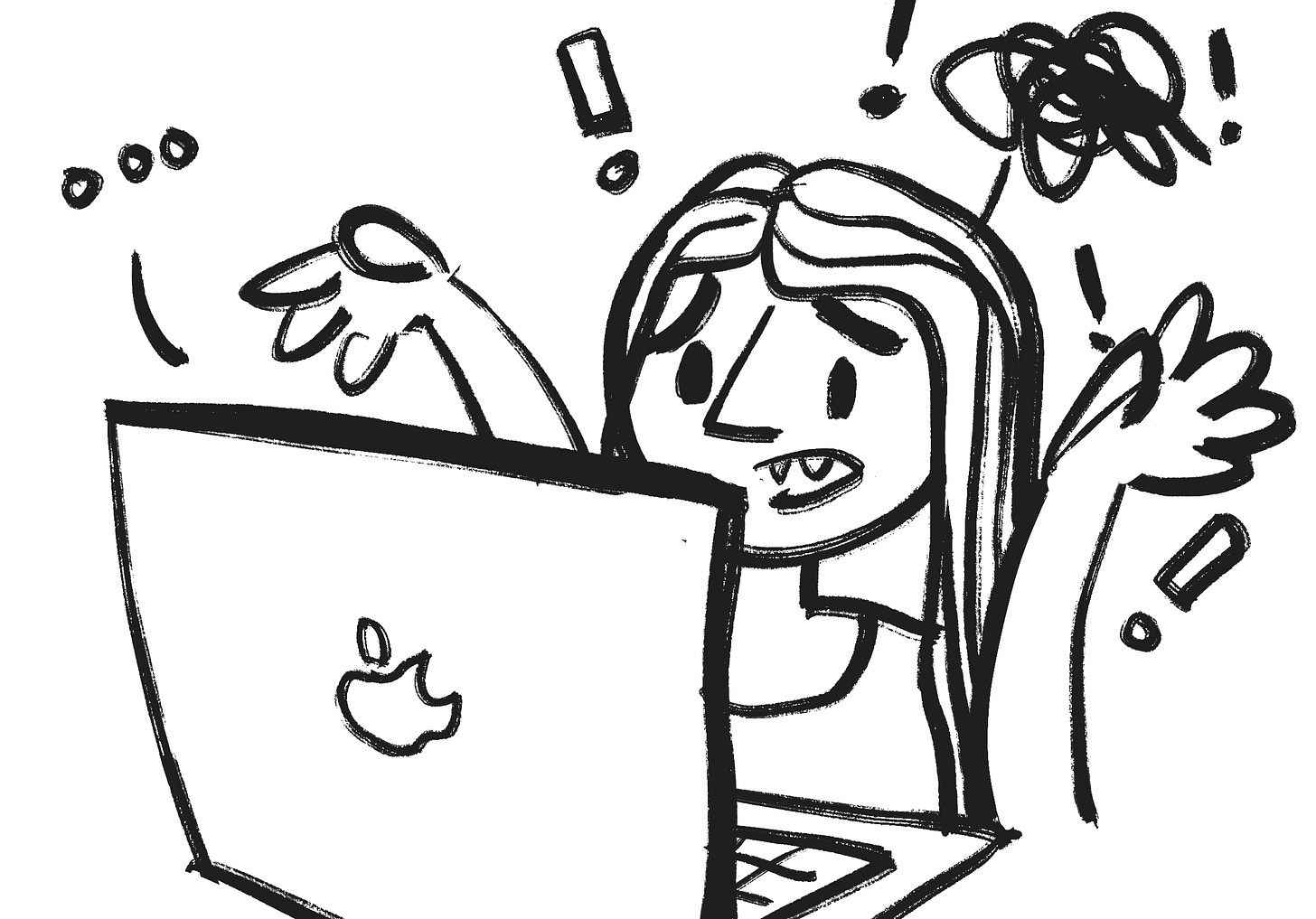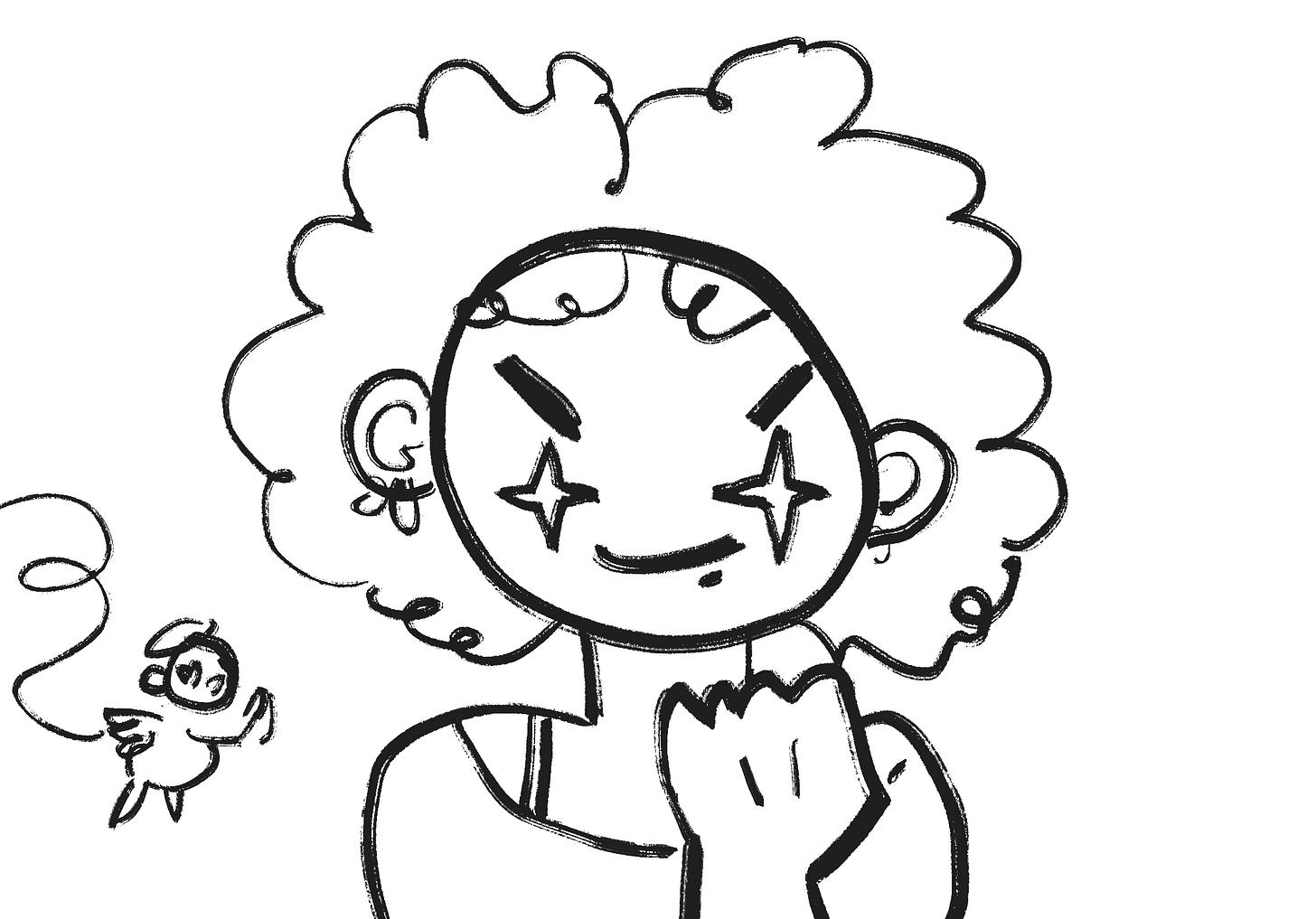How to... be a great mentor
Put in the time and become the mentor you wish you'd had.
Welcome to Thrifted Design Leadership, the weekly newsletter where I share design leadership tips I’ve begged, borrowed and stolen from my betters ✨
Mentorship is all the rage now- something I’m so happy to experience, having got into the industry when none of these initiatives existed.
I’ve mentored with Limit Break (targeted at under-represented demographics in the games industry), BAFTA, and Hexagon UX (ran by Google, targeting underrepresented genders getting into UX design), among others.
If you’re thinking of becoming a mentor and want to do it REALLY WELL, here’s some tips to get you going!
Define what mentorship means to you
In simple terms, mentoring is a relationship between two people, one who is more experienced in some area of their career, where meetings are conducted over a set period of time, with a tangible goal at the end of it. The actual schedule, contents and cadence should be defined by you two.
The best way to have a fulfilling mentoring relationship for both parties is to lay out the ground rules and expectations at the start. How often are you meeting? What will you focus on- practical skills or personal/soft (ugh, hate that term but unrelated) skills? Getting their next job or excelling in their current role?
Your mentoring is much more likely to be successful if your mentee has a clear idea of what they want to get out of it- and this is up to them to define. Often I will spend my first 1 or 2 sessions with a mentee figuring this out, so I can be of best help to them.
As an example, one of my mentees (the amazing Isa who JUST BECAME A SENIOR DESIGNER!!!) lived close to me and needed more to talk about general career paths, so we met in a local pub for a pint every few weeks. A current mentee is working on her technical UX skills, but has a busy life with young children and an already successful career, so we meet over Zoom before her workday biweekly, where we do a mini critique of the UX work she’s done in the meantime. Both of these are valid mentoring relationships- it’s not one size fits all.
Your mentee should be driving this relationship. They are the one receiving the bulk of the help (tho mentoring will help your career too!)- therefore they need to be putting in the hard work to make sure it’s valuable for them. On the flip side…
Mentorship is not therapy
For many mentees, having an industry mentor is the first time they will have someone who truly understands their goals, their industry and what it will take them to get there. Unfortunately, this leads to some folks, who are less experienced in the corporate world, not knowing how to put boundaries in place when it comes to their professional relationships.
It’s okay to talk about mental health. It’s okay to talk about trauma. But you are not there to unpack or ‘fix’ those things for your mentee. You can look at how those factors affect their work performance and future aspirations, but getting deeper than that can lead to trauma dumping and undue expectations on the mentor themselves.
You are not your mentee’s therapist. As a responsible mentor, you must identify those boundaries at the start of your relationship, reinforce them as you go and, ultimately, take action if the mentee crosses those lines.
It’s healthy to discuss this with your mentee early on, when you’re setting the expectations of what your mentoring relationship will be. But always remember that you have an active choice to be a mentor. If it’s getting to heavy- speak to your program coordinator or graciously bow out. You are not obligated to continue if your mentee needs more help than you can give.
Your path is not theirs
When many mentors start out, they try to prescribe advice to their mentees based on their own path. How they built their first portfolio, or got their first internship or job out of uni.
The sad reality that makes me feel very old is how rapidly these concrete paths to industry change and shift, because our industry is ever-evolving. It’s impossible to stay up to date on what these modern pathways are as a working professional (unless you’re also lecturing or heavily involved in early career hiring).
For example, when I was starting out the standard path was to do an unpaid internship (booo), or get work as QA over the summer holidays at uni. Game jams were large and intense- GGJ participation was basically expected in your folio, and doing well in them was a pathway to indie darling status. The IGDA Scholarship to GDC was the mark of someone doing well for themselves, and GDC attendance was the route to networking with big studios who were otherwise secretive and selective.
These days, many of these pathways are either totally gone, or largely irrelevant. The rise of itch.io and Discord gamedev communities, along with dev tools being more accessible than ever and studios opening up about their practices, has made hobbyist game dev a much more viable route to success. Even courses like General Assembly and Love Circular have massively increased the UI-UX skills we see in junior candidates, without four years of education.
What is always relevant is…
your professional perspective and
the skills that never go out of style- art, design and engineering fundamentals
good workplace and interviewing etiquette
the power of putting yourself in the right place at the right time
Recognise the limitations of your own experience- on the flip side, you will be able to learn so much about the modern realities of entering the industry from your mentee!
Mentor to your strengths
Everyone can be a mentor. Many schemes (like Limit Break) encourage you to sign up when you have 5+ years’ experience, but personally I disagree- mentoring is a skill you can practice at any point in your career.
I have struggled mentoring people too far down the chain from my own experience (wow that sounds bad), because of how much the industry has changed in the intervening years (see my points above.)
As a Junior Designer, you are best placed to help mentor someone who is a few years behind you. You’d be great help to someone looking for what university degree to study, or a final year student perfecting their honours project.
Likewise, as a Creative Director, you’re probably most helpful to someone who is Senior and looking to step up. This doesn’t mean your advice is useless for the same uni student, but you might actually not be leaning on your strengths as a mentor.
HOWEVER. It all depends on that tailored mentoring relationship (see my first point.) I am a strong presenter and confident public speaker (tho you’d never guess from this blog lmao) - that is something I can and have mentored people on at different stages in their career, even people who are senior to me in pure experience.
Think about your own strengths and interests. It’ll be so much more rewarding to build your mentoring around them, and find the people who can benefit the most from them.
Ultimately, the way to be a good mentor is to practice it, like any skill. Mentoring can be formal, through a scheme, or informal, in your community. Not every mentoring relationship will work out, but if you approach it in a positive and learning mindset, you can grow one of the most rewarding branches of your career!
Thanks for reading! What do you want to hear next? I’m thinking either…
my guide to getting your first management role
or…
the lessons from game UX design for product designers
What you you prefer? Let me know below!
Peace out
C






Hey, nice article! I'd love to hear about your guide to getting your first management role :D
Great writeup! I especially like your point of not prescribing because the landscape changes so fast, as it's very true. Would love to see your thoughts on the lessons from game UX design for product designers next!